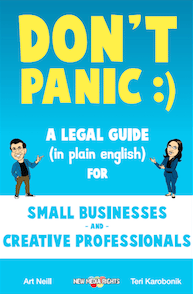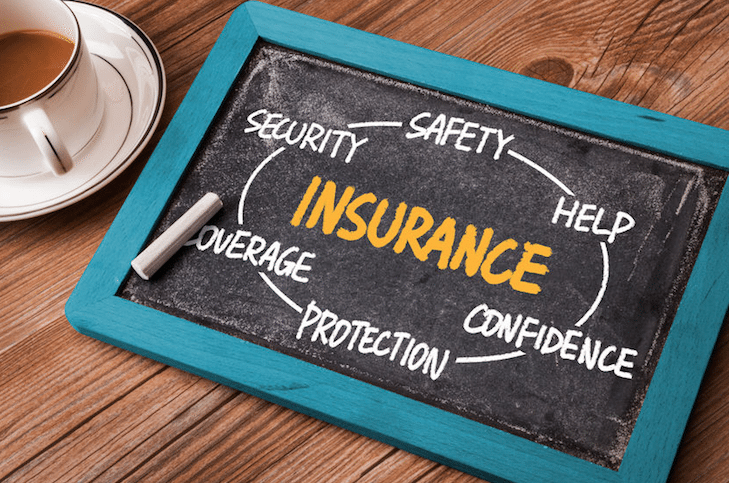Have you ever tried to lock down insurance for a business? It can be difficult to understand all of the different types of insurance available to you, and which ones may be right for your business. Professional liability insurance is a key type of insurance for small business owners to consider, and this post offers a rundown of what it’s all about.
When mistakes cost big bucks
Professional liability insurance, also known as “errors and omissions insurance” (or E&O insurance), will help protect your assets against claims of negligence, misrepresentation and inaccurate advice. Essentially, an E&O policy will back you up when you make a mistake or an error that ends up costing a lot of money. Some professionals, such as lawyers, doctors and accountants, are actually required to have a professional liability policy. Others, like filmmakers, need to have E&O insurance if they want to distribute outside of YouTube and Facebook, on platforms such as on Netflix, Hulu or HBO.
Even if your particular industry doesn’t require E&O insurance, it may still be worth considering purchasing. For example, if you provide a service or software that your clients rely on heavily to do business or manage data, or if you produce any kind of creative work that reuses anyone else’s work without permission, then you will want to consider purchasing E&O insurance.
E&O insurance versus general liability insurance
It’s important to understand that professional liability insurance is not the same as general liability insurance. A general professional liability insurance policy covers claims made for damage to a person or to physical property. A typical E&O policy, however, protects claims made for damages (the legal term for money) for things such as intellectual property infringement, data breaches, reputation and other forms of intangible property. This can be particularly important for technology and creative ventures that are often highly reliant on intangible property in their business.
For example, if your tech startup provides a digital platform for companies to collect customer orders and that platform goes down for a week, your clients are going to lose business opportunities. They may sue you because you promised to provide their business platform and then failed to do so. Hopefully you accounted for this with a well-drafted terms of use, but this is where your E&O policy might come into play to help cover their claim against you for lost profits.
On the creative side, maybe you just finished your first documentary film and a large media company claims that you used content that infringes on their copyright. Your E&O policy may help you defend against such a lawsuit. Even if the claim is found to be groundless, it could still end up costing you a lot of money to defend yourself. Without an E&O policy, you are putting yourself at risk of having to cover all of those costs.
Also on StartupNation.com: Why Your Startup Can’t Afford to Forget Liability Insurance
The different types of E&O
Different industries have different standards and types of E&O insurance policies and requirements. Here are a few different specific options for small businesses and startups in the creative and technology fields that we’ve addressed below.
- Producer’s E&O Insurance
Producer’s E&O insurance protects a piece of media from claims of copyright infringement, libel, slander and plagiarism (among other things). You typically need Producer’s E&O insurance before distribution. This is because many distribution companies will often not work with a film, TV show or radio show until the producer has acquired an E&O policy that protects that particular piece of media. To get an E&O policy on your film or show, you must work with a licensed attorney first. The attorney will review the film, informing you if any parts of it are at risk for lawsuits, and you will then have the opportunity to edit and adjust the film. Once the attorney clears your edits, he or she will write a professional opinion letter to the insurance agency. The insurance agency pays particular attention to the attorney’s opinion when deciding whether to offer you a policy and how much to charge you. This process may take a few days or a few months, depending on the content of your film and how quickly you can make edits.
It’s important to be as accurate and complete with your attorney as you can. Be sure to work with an attorney as soon as possible, preferably right as pre-production begins. Many E&O policies contain “Clearance Procedures” that require an attorney to be involved from the outset of a production, so the earlier you reach out to an attorney, the easier your path to getting insurance will be.
- Media Peril E&O Insurance (aka “Media Liability Insurance”)

(“Don’t Panic! A Legal Guide (in plain English) for Small Businesses and Creative Professionals” by Art Neill and Teri Karobonik)
Media Peril E&O insurance is for authors, bloggers and freelance writers. It is similar to a producer’s E&O policy in that it helps pay out any judgments or settlements, and protects an author from the costs associated with defending claims of copyright infringement, libel and invasion of privacy. Once your work is made public, it can reach many people very quickly; it’s best to have a policy in place before you publish or post your work publicly. You can get a policy as an individual or as a business entity. Depending on whether you write casually as a blogger or more full-time as an author, you should work with your insurance agent to determine if your particular situation warrants an individual policy or a business policy.
- Tech E&O Insurance
Tech E&O insurance covers a broad range of technology-based business liabilities. It is intended for the types of companies that do things like create component parts for computers or robots, develop software and apps, or consult with companies about their technology systems and options. A tech E&O policy can help cover costs associated with claims that a product doesn’t work the way you promised it would. Those customers could try to sue you to cover the costs associated with rectifying the problem, and without an E&O policy, those claims could cost you thousands of dollars you don’t have yet. It is best to be covered for these possible errors before you start providing services to your clients.
Even if you don’t seem to fit into any of the three categories above, you should still consider an E&O policy if you provide services that could lead to intangible claims. While professional liability insurance is arguably the most important type of insurance for creators and entrepreneurs, it does not protect against every situation. There are a variety of other insurance types that you should consider and reconsider as your company grows, which you can read about in New Media Rights’ new book, “Don’t Panic!”
The new book, “Don’t Panic! A Legal Guide (in plain English) for Small Businesses and Creative Professionals,” provides guidance on professional liability insurance. “Don’t Panic!” was written by New Media Rights, a non-profit organization that provides legal services to content creators and small businesses whose projects require intellectual property, media and internet law expertise.






